April 8, 2010 (LPAC)—Those old enough to recall it, know that the US troops fighting in Vietnam 1965-75, became addicted to heroin on a grand scale. Now, Barack Obama has plunged the United States into yet another such long, no-win war; but this time, our troops are literally fighting right in the very opium-poppy fields themselves,— while Obama is acting on the orders of his British controller Tony Blair, to do nothing to disrupt Afghanistan's massive heroin production.
Statesman Lyndon LaRouche has called on the US to destroy the opium crop and heroin labs overnight, in conjunction with Russia, and then immediately withdraw our troops, to continue to fight and defeat the heroin problem through interdiction and containment from without.
Although the Pentagon denies it, and the Veterans Administration (VA) keeps mum about it, one would naturally expect that the US troops in Afghanistan must be becoming victim today, as in Vietnam earlier, to a massive heroin problem. Moreover, compare the susceptibility of today's so-called "all-volunteer army," recruited largely from the economically most-desperate, with the draftees' army in Vietnam. And further, it has been documented that today's US Army recruiters often do not allow a "volunteer's" background of drugs and petty crime to stand in the way of their recruitment quotas. Meanwhile, a large part of the US forces in Afghanistan are professional mercenaries, subject to no discipline and often morally degraded. All in all, what more dangerous combination in opium-drenched Afghanistan, where a heroin habit can be sustained for as little as $1 a day, according to investigative journalist Gerald Posner.
Writing in Salon as early as Aug 7, 2007, filmmaker-journalist Shaun McCanna personally attested that heroin could readily be bought in the Bagram Bazaar, just outside the gate of Bagram airfield, the largest US base. Accosted by a bazaar trader who asked him, "You want whiskey?", McCanna answered, "No,— heroin," and was ushered inside the trader's stall to buy it. He tried this dozens of times there and never failed to "score."
But US soldiers were not generally going to the bazaar to get their heroin; instead, it was delivered to them right on the base. At the time of McCanna's visit, heroin was being delivered onto the base mainly by 7-14 year-old boys, who threw it over the fence disguised in matchboxes or cigarette packs. But that was right after the "Cheney bomb," the massive bombing which accompanied then Vice-President Cheney's visit in February 2007, bringing greatly-heightened security. Previously, heroin had always been delivered onto the base through the main gate, and McCanna's heroin-peddling source fully expected that he would soon be able to bring it all in through the main gate once again.
Named and unnamed US soldiers told McCanna and Posner that heroin was "everywhere" in the Bagram base. Many knew other soldiers who used it while deployed.
Stateside, McCanna's contacts in and around VA drug-rehab programs told him that addicts' entry into such programs generally takes 2-10 years to reach its peak, but yet some said they were already seeing a surge of heroin addicts from Afghanistan. But then, when he asked to interview them on the record, the VA denied permission.
Gerald Posner provided the sequel to McCanna's account with an Oct 19, 2009 article in the Daily Beast. An unnamed source of Posner's, a US intelligence official, had told him of an internal US intelligence report which found that Taliban and al Qaeda were tagetting US troops with heroin to undermine their effectiveness and raise cash, just as they had done with the Soviet troops earlier.
A US soldier from Afghanistan confirmed parts of McCanna's account to Posner, including the information that soldiers have bartered away military equipment, including knives, helmets and flak jackets, for drugs. "Why do you think you can buy surplus military equipment inside the bazaar?", he asked.
The Pentagon says it has a widespread drug-testing program, and that only a miniscule proportion of troops test positive. But one wonders. Army spokesman George Wright told Posner, "In Iraq, a majority of units inspected at the brigade, battalion, and company levels were meeting the intent of current Army policy, but compliance in Afghanistan is problematic due to operational tempo and unit dispersion."
Former US Drug Czar Gen. Barry McCaffrey told a Florida meeting the truth last year: that we must destroy the Afghan opium plants, or US soldiers will continue to abuse heroin, and terrorism will continue to thrive in Afghanistan, as reported in a May 20, 2009 report in the Palm Beach Post.
Flokkur: Stjórnmįl og samfélag | Facebook
Um bloggiš
Amazing Iceland and Icesave
Nżjustu fęrslur
- Washington Represents the Most Concentrated form of Evil in H...
- F William Engdahl - Totalitarian Democracy in the New World O...
- Ķ tilefni jįtningar Tony Bliar
- Washington's Path to War with Russia
- Obama Places World on Fast Track to Thermonuclear War
- State of the Union - Lyndon LaRouche - Jan 18, 2012
- Thanks for arriving early!
- Banned incredible Ron Paul Video
Fęrsluflokkar
Tenglar
Pólitķk
Stjórnmįl og kosningar 2007
- HJARI VERALDAR
- Inspired by Amazing Iceland Amazing Videos from Iceland
- FREE Iceland Crash Book Iceland Crash Enslaving a Small Nation. The Brutish Empire strikes again.
- ICALAND ECONOMIC DISASTER
- GLOBAL GLASS STEAGALL Saving the Planet Now!: A Global Glass Steagall
- Iceland Crash ! Vefsķša į ensku um hruniš į ķslandi
- Kvótagreifarnir Kvótabófarnir sem öllu rįša!
- Wordpress Stjórnmál My Wordpress Blog. Iceland Crash
- Freedom Burma. Restoration AUNG SAN SUU KYI er eini Nóblesveršlaunahafi ķ fangelsi !
Góšir Linkar
Įhugaveršir Linkar fyrir feršamenn,og ašra sportmenn.
- Silencer Brake Combo Gun silencer and gun Tech Books and accessories for rifles and pistols
- Heimasíða Rifflar BRS Custom Rifles Custom rifles precision made. Hunting and target rifles.
- Glass Bedding Rifles Leišbeiningar um hvernig į aš bedda riffle
- Custom Rifles Blog Custom Rifles, Gun silencer blog
- Double Action Brake Silencer og Muzzle Brake Combo.
- Síðan Mín ! How to make a gun silencer
- Gun Silencer How to make a gun silencer
- Amazing Iceland Video Collection
- GOOGLE PRECISIONGROUP
- MSN Precisiongroup
- YAHOO PRECISONGROUP
- Amazing Iceland !
- B.R.S. RIFLES BLOG
- TOOL DESIGN !
- RIFLEPRO BLOG !
- MSN RIFLEPRO SPACES
- Betri Rifflar !
- NÁTTÚRU VIDEO GOOGLE
- TOOLPATENT !
- VIDEO VERSLUN.
Bloggvinir
Heimsóknir
Flettingar
- Ķ dag (15.9.): 1
- Sl. sólarhring: 1
- Sl. viku: 13
- Frį upphafi: 21457
Annaš
- Innlit ķ dag: 1
- Innlit sl. viku: 12
- Gestir ķ dag: 1
- IP-tölur ķ dag: 1
Uppfęrt į 3 mķn. fresti.
Skżringar

 gammon
gammon
 bofs
bofs
 lovelikeblood
lovelikeblood



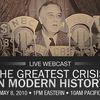

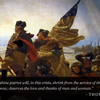
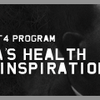
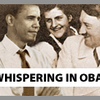

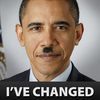
Bęta viš athugasemd [Innskrįning]
Ekki er lengur hęgt aš skrifa athugasemdir viš fęrsluna, žar sem tķmamörk į athugasemdir eru lišin.